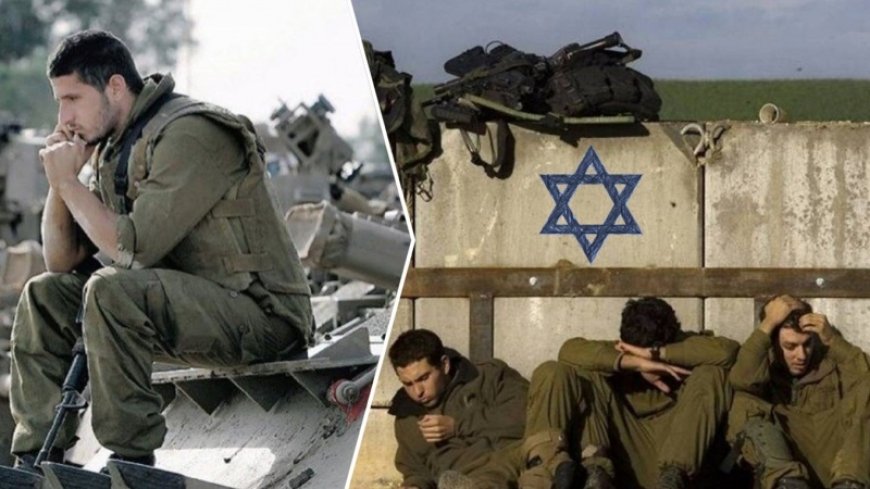The Israeli Defense Forces (IDF) are grappling with an unprecedented crisis as the conflict with Gaza stretches into its tenth month, exacerbating issues of manpower shortages, mental health challenges, and strategic concerns.
The Israeli Defense Forces (IDF) are grappling with an unprecedented crisis as the conflict with Gaza stretches into its tenth month, exacerbating issues of manpower shortages, mental health challenges, and strategic concerns.

Since the onset of Operation Al-Aqsa Storm and subsequent hostilities against Gaza on October 7 last year, a staggering 900 army commanders and majors have filed for early retirement, according to a report by Israeli television Channel 12. This figure marks a significant rise from previous years, where such retirements typically numbered between 100 to 120 for similar ranks.
In addition to retirements, reports from Associated Press indicate a concerning increase in mental health issues among IDF personnel. Over 9,000 soldiers have sought psychological treatment since the conflict's commencement, with a quarter of them unable to return to active duty. This surge in mental health cases has been attributed to the prolonged nature of the conflict and the stress of combat operations.
Nir Dovari, an expert on Israeli military affairs, highlighted the strain on retaining senior officers amidst the ongoing crisis. "The current situation poses one of the greatest challenges in maintaining experienced leadership within the IDF," he remarked.
Compounding these internal challenges are external strategic threats. Former Israeli Prime Minister Ehud Olmert recently warned of the potential for a full-scale conflict with Hezbollah, emphasizing the vulnerability of Israel in the face of the Lebanese group's capabilities. Recent actions by Hezbollah targeting Israeli military positions in northern territories have heightened security concerns within the country.
The broader geopolitical implications of Israel's military actions in Gaza have also drawn international scrutiny. Western countries continue to provide substantial support to Israel, despite criticism from human rights organizations regarding civilian casualties. According to recent reports, the conflict has resulted in over 37,000 Palestinian fatalities and more than 85,000 injuries.
The ongoing conflict underscores the deep-rooted tensions in the region, stemming from Israel's establishment in 1948 and subsequent territorial disputes with Palestinian and neighboring Arab states. The conflict remains a focal point of contention in global diplomacy, with calls from various nations, notably led by the Islamic Republic of Iran, for a resolution that addresses Palestinian sovereignty and Israeli security concerns.
As the crisis within the IDF deepens, Israel faces a pivotal juncture in its military strategy and internal cohesion, with implications extending far beyond its borders.













































